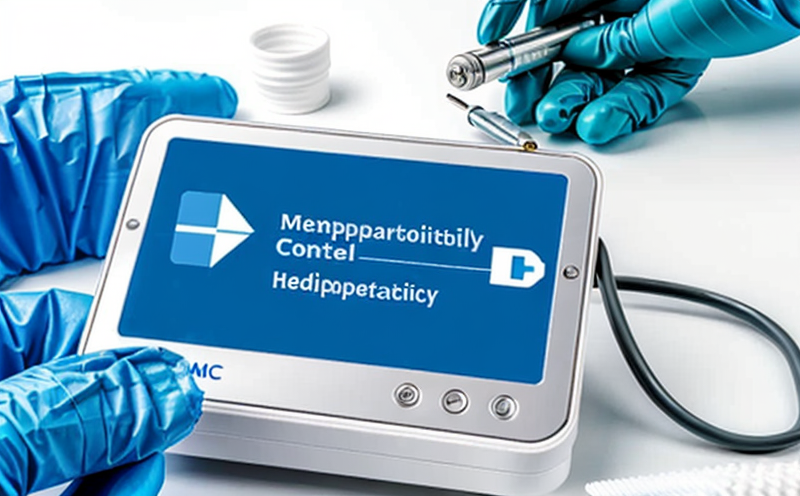Testing for hemocompatibility in medical devices used in blood contact
The Critical Importance of Hemocompatibility Testing in Medical Devices Why Your Business Needs It
In the rapidly evolving landscape of medical technology, one crucial factor stands out as a prerequisite for ensuring patient safety and regulatory compliance hemocompatibility testing. As manufacturers of medical devices used in blood contact continue to innovate and push boundaries, its essential to recognize the critical role that these tests play in validating device performance and minimizing potential health risks.
At Eurolab, our laboratory service is dedicated to providing top-notch hemocompatibility testing for medical devices, ensuring that they meet stringent regulatory requirements while safeguarding patient well-being. In this comprehensive guide, well delve into the world of hemocompatibility testing, exploring its significance, benefits, and best practices.
What is Hemocompatibility Testing?
Hemocompatibility testing evaluates how medical devices interact with blood, assessing their ability to prevent or minimize adverse effects on patients health. This includes examining a devices potential to activate blood clotting, influence coagulation pathways, or cause thrombosis. By conducting these tests, manufacturers can
Identify and mitigate risks associated with their products.
Ensure compliance with regulatory guidelines, such as those outlined by the FDA (US), EMA (EU), and ISO standards.
Maintain customer trust and confidence in their medical devices.
The Advantages of Hemocompatibility Testing
Conducting hemocompatibility testing is a strategic decision that offers numerous benefits for businesses involved in medical device development and manufacturing. Some key advantages include
Advantages for Manufacturers
Improved Patient Safety By reducing the risk of adverse events, manufacturers can enhance patient trust and loyalty.
Compliance with Regulatory Requirements Ensuring compliance with industry standards and regulations reduces the likelihood of costly recalls or regulatory actions.
Enhanced Product Quality Hemocompatibility testing enables manufacturers to optimize their products, resulting in improved performance and reduced risk of complications.
Advantages for Healthcare Providers
Reduced Liability By selecting medical devices that have undergone hemocompatibility testing, healthcare providers can minimize their liability in the event of adverse events.
Improved Patient Outcomes Using tested medical devices reduces the likelihood of complications, leading to better patient outcomes and reduced healthcare costs.
Advantages for Patients
Increased Trust Knowing that their healthcare provider has chosen medical devices with proven hemocompatibility enhances patient trust in the care they receive.
Better Health Outcomes By minimizing potential health risks associated with medical devices, patients can enjoy improved well-being and reduced recovery times.
Why Choose Eurolab for Hemocompatibility Testing?
At Eurolab, were committed to providing fast, accurate, and comprehensive hemocompatibility testing services. Our state-of-the-art laboratory is equipped with the latest technology and staffed by experienced experts in the field. By choosing our service, manufacturers can
Meet Regulatory Requirements Ensure compliance with industry standards and regulations, reducing the risk of costly recalls or regulatory actions.
Gain Access to Expertise Leverage our teams extensive knowledge and experience in hemocompatibility testing to optimize device performance and patient safety.
Frequently Asked Questions (FAQs)
Q What is the purpose of hemocompatibility testing?
A Hemocompatibility testing evaluates how medical devices interact with blood, assessing their ability to prevent or minimize adverse effects on patients health.
Q How does Eurolab conduct hemocompatibility testing?
A Our laboratory service employs a range of tests, including but not limited to, in vitro and in vivo studies, to assess device performance and patient safety.
Q What are the regulatory requirements for hemocompatibility testing?
A Regulatory guidelines vary depending on geographical location. In general, medical devices used in blood contact must undergo hemocompatibility testing to ensure compliance with industry standards and regulations.
Q Can I conduct hemocompatibility testing in-house?
A While its technically possible, conducting hemocompatibility testing in-house can be resource-intensive and may not provide the same level of expertise and objectivity as outsourcing to a dedicated laboratory service like Eurolab.
Conclusion
In the ever-evolving landscape of medical technology, hemocompatibility testing stands out as a crucial factor for ensuring patient safety and regulatory compliance. By understanding the benefits of conducting these tests and partnering with an experienced laboratory service like Eurolab, manufacturers can optimize their products, reduce risks, and maintain customer trust.
Join us at Eurolab in prioritizing hemocompatibility testing for your medical devices used in blood contact, empowering your business to drive innovation while safeguarding patient well-being.




